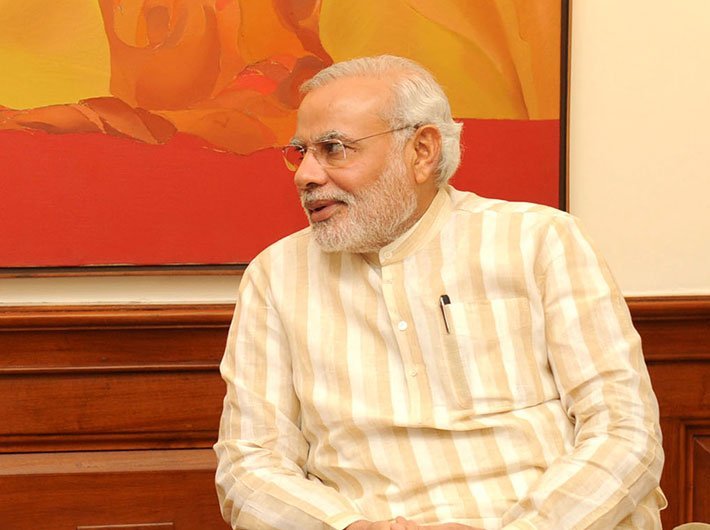A dichotomy exists between government’s policies and implementation, says a civil society initiative which reviewed the Modi government that completes three years in office
The civil society has strongly criticized the Narendra Modi government that completes three years in office.
Citizens’ Report: Promises and Reality that was released under Wada Na Todo Abhiyan (WNTA), a civil society initiative, on May 24, says that a dichotomy exists between government’s policies and implementation.
On the one hand, the government has introduced credit facilities, Skill India and monitoring of the funds for SC/ST, and on the other hand, it has withdrawn grants from centres for study of social exclusion, and not made efforts to stop structural violence against the community.
WNTA reviewed the promises and performance of the NDA government in the last three years and it has released an anthology of reviews written by experts.
The perpetual election campaign mode, and the aggressive hate rhetoric of the government is giving a lot of stress to the religious minorities, writes human rights activist John Dayal.
The government’s promise of creating 10 million jobs still remains a dream. It has failed to reverse UPA’s dismal record of almost jobless growth, writes human rights and peace worker Harsh Mander.
In the report, experts stated that governance and inclusive development are no longer in the government’s agenda.
The report criticises demonetisation stating that it the “unprecedented” but “controversial” move was projected in the media as the government’s “masterstroke”. But it was actually, the government’s act of expropriation that led to widespread public hardship and brought back no black money, it says.
Aakar Patel of Amnesty International, writes, “The human rights have come under sustained assault as India lags in creating a just, peaceful and inclusive society. Impunity for human rights violations by security forces remained a major concern.”
“The Armed Forces (Special Powers) Act, which grants security forces sweeping powers and virtual immunity from prosecution, continued to enable human rights violations in Jammu and Kashmir and north-eastern states. Authorities used crude colonial-era laws to silence voices of dissent. Despite several cases of racist violence and discrimination against African nationals, the government refused to acknowledge the attacks as racist,” it says.
It cited an international survey by the World Justice Project, which places India among 133 countries in the rule of law index, well below at least two peer countries Brazil (52nd) and South Africa (43rd). Experts blame the result on the “insufficient attention” to access to justice. “Goal 16 of the United Nation’s Sustainable Development Goals focuses, among other things, on access to justice for all. But facts show that India’s effort towards achieving the goal is anything but satisfactory, whether it is provision of infrastructure, human resources, or public investment into achieving the goal,” it says.
Speaking at the function organised to release the Citizens’ Report, Pamela Philipose, public editor of The Wire said, “As the BJP-led government completes three years in power, the pace at which it has moved towards mainstreaming its core ideology of Hindutva has far exceeded anything earlier envisaged. The appointment of Yogi Adityanath as the Uttar Pradesh CM in March 2017 was, perhaps, the clearest sign of this. Looking at the scenario through the prism of media may be useful, given the central role played by newspapers, TV channels and social media in helping normalise and sanitise these seismic shifts.”
She adds, “It is well-acknowledged that Modi won his handsome mandate in 2014 with unqualified support from the mainstream media. Three years later, the media continues on the same groove, enthusiastically promoting his policies and politics. They do this against a background of blocked access, tweaked data and opacity in government functioning. All these are disturbing developments that bode ill for the future. A new note of muscular nationalism has crept into media discourse. Also conspicuous is the curbing of dissent and the rise of the surveillance state. With General Election 2019 drawing closer, the challenges are only set to rise. The call of the times is for people to come together, share their experiences, speak out against everyday repressions.”
RTI activist Anjali Bhardwaj says, “The status of anti-corruption institutions and legislation is a clear indication of how the Bharatiya Janata Party is reneging with impunity on its poll promise of a Bhrashtachar-mukt Bharat. Lack of will on the part of the government to ensure greater accountability and transparency in its functioning, can be inferred from its various actions and inactions in the last three years. The government has failed to implement the Whistle Blowers Protection Act, which was passed by parliament more than three years ago to provide protection to those who expose corruption and wrongdoing.”
The WNTA has been coordinating the Civil Society Review of the government as a way of holding the state accountable to its promises. The first review was conducted in 2005 of UPA-I followed by annual reviews. In addition, it has done a nine-year review of UPA (I & II), one on 100 days of UPA-II and 100 days of NDA, the Annual Review of the NDA Government, released on May 24, 2015, and another review a year later, on May 24, 2016.
